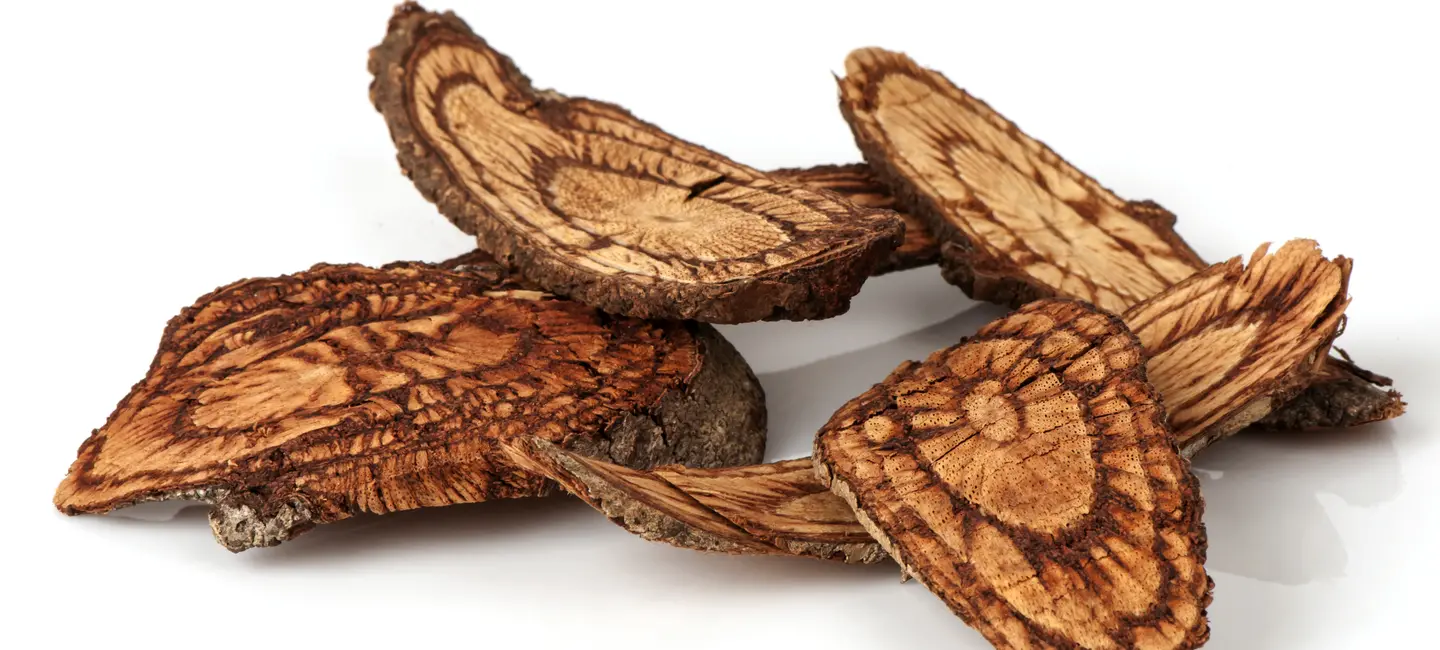
Salacia is an herb that is native to India and Sri Lanka. The root and stem are used to make medicine.
Salacia is used for diabetes, asthma, joint pain, weight loss, and other conditions, but there is no good scientific evidence to support these uses.
Mugs made from salacia wood are used by people with diabetes to drink water.
Is It Effective?
NatMed Pro rates effectiveness based on scientific evidence according to the following scale: Effective, Likely Effective, Possibly Effective, Possibly Ineffective, Likely Ineffective, Ineffective, and Insufficient Evidence to Rate.
- Diabetes. Early research shows that drinking salacia tea with each meal might lower glycated hemoglobin (HbA1C) levels in people with type 2 diabetes. Other early research shows that taking salacia with food for 6 weeks might reduce blood sugar and HbA1C levels in patients with type 2 diabetes.
- Itching skin.
- Gonorrhea.
- Joint problems.
- Asthma.
- Losing weight.
- Other conditions.
More evidence is needed to rate the effectiveness of salacia for these uses.
Is it Safe?
Chemicals in salacia seem to prevent sugars in food from being absorbed by the body.
When taken by mouth: Salacia is POSSIBLY SAFE when taken for up to 6 weeks. There isn't enough reliable information to know if salacia is safe when used for longer periods of time. Salacia can cause uncomfortable side effects such as gas, belching, pain in the abdomen, nausea, and diarrhea in some people.
Special Precautions & Warnings:
Pregnancy and breast-feeding: There isn't enough reliable information to know if salacia is safe to use when pregnant or breast-feeding. Stay on the safe side and avoid use.
Diabetes: Salacia can decrease blood sugar levels. Your diabetes medications might need to be adjusted by your healthcare provider.
Surgery: Salacia might lower blood sugar levels. There is some concern that it might interfere with blood sugar control during and after surgery. Stop using salacia at least 2 weeks before a scheduled surgery.
Medications for diabetes (Antidiabetes drugs)
Interaction Rating=Moderate Be cautious with this combination.
Salacia might decrease blood sugar. Diabetes medications are also used to lower blood sugar. Taking salacia along with diabetes medications might cause your blood sugar to go too low. Monitor your blood sugar closely. The dose of your diabetes medication might need to be changed.
Some medications used for diabetes include glimepiride (Amaryl), glyburide (DiaBeta, Glynase PresTab, Micronase), insulin, pioglitazone (Actos), rosiglitazone (Avandia), chlorpropamide (Diabinese), glipizide (Glucotrol), tolbutamide (Orinase), and others.
Herbs and supplements that might lower blood sugar: Salacia might lower blood sugar levels. Taking it along with other herbs that lower blood sugar might lower blood sugar too much. Herbs that might lower blood sugar include devil's claw, fenugreek, garlic, guar gum, horse chestnut, Panax ginseng, psyllium, and Siberian ginseng.
There are no known interactions with foods.
The appropriate dose of salacia depends on several factors such as the user's age, health, and several other conditions. At this time there is not enough scientific information to determine an appropriate range of doses for salacia. Keep in mind that natural products are not always necessarily safe and dosages can be important. Be sure to follow relevant directions on product labels and consult your pharmacist or physician or other healthcare professional before using.
Chundan, Kothala Himbutu Tea, Ponkoranti, SO, S. oblonga, Salacia oblonga, Salacia reticulata.
Information on this website is for informational use only and is not intended to replace professional medical advice, diagnosis, or treatment. While evidence-based, it is not guaranteed to be error-free and is not intended to meet any particular user’s needs or requirements or to cover all possible uses, safety concerns, interactions, outcomes, or adverse effects. Always check with your doctor or other medical professional before making healthcare decisions (including taking any medication) and do not delay or disregard seeking medical advice or treatment based on any information displayed on this website.
© TRC Healthcare 2024. All rights reserved. Use and/or distribution is permitted only pursuant to a valid license or other permission from TRC Healthcare.
